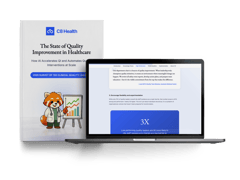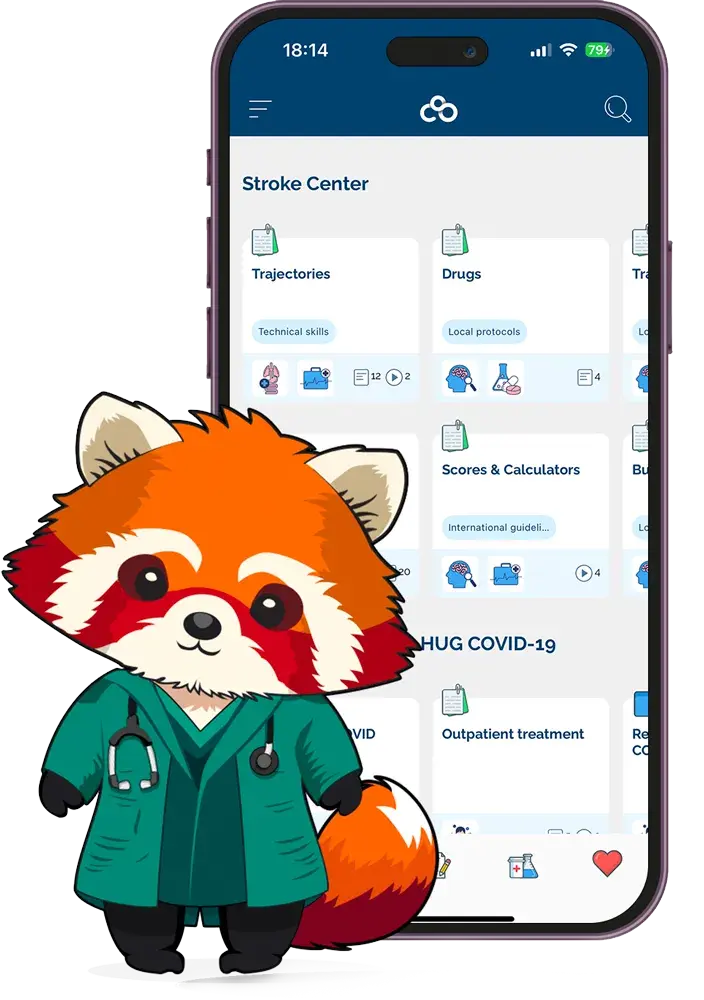
Innovative Approaches on How to Drive Operational Efficiency in Healthcare
Healthcare is facing unprecedented challenges. The demand is rising every year due to population growth, an aging society, and the surge in chronic diseases. [1] Nevertheless, the shortage of workforce is projected to reach 10 million by 2030. [2]
Due to the high demand and limited staff, healthcare staff could be overworked, leading them to burn out and be dissatisfied with their job. But how do we prevent it? By improving operational efficiency.
This method is all about smart resources management for your healthcare operations. When done right, it leads to a happier workforce that translates to better patient outcomes. Intrigued? Let's explore innovative approaches to achieve these results below.
» Improve hospital operations with a knowledge management system
Challenges for Healthcare Operations
Hospitals face many challenges that prevent them from function effectively, such as:
- Staffing Crisis: As we've said, the medical industry is facing a severe shortage of professionals. In fact, the American College of Healthcare Executives survey shows that a lack of workforce has been a top concern for past two years. [3]
- Information Silos: Fragmented systems and lack of interoperability reduce effective communication and coordination. Standards like HL7 FHIR and CDA are essential for improved communication between systems, according to research. [4]
- Regulatory Compliance: Keeping up with ever-changing healthcare regulations can be time-consuming and resource-intensive. According to the American Hospital Association, an average size hospital dedicates 59 FTEs to regulatory compliance, over one- quarter of which are doctors and nurses. [5]
- Technological Adoption: A systematic review identified 125 barriers to health professionals adopting new technology. The most common were related to the need for additional training and its length. [6]
» Learn to measure operational efficiency
6 Approaches to Improve Healthcare Operational Efficiency
1. Use Electronic Health Records
Digital software can help providers make better decisions in many areas of operations. For example, electronic health records enable staff to retrieve patient documents faster, which speeds up diagnosis.
Changes made to a patient's record are instantly visible to all authorized users. This convenience allows for timely updates on a patient's condition, treatment plans, and test results-helping staff coordinate and preventing miscommunication.
» Check out the most common examples of IT in healthcare
2. Set Up Quality Improvement Methods
Lean Six Sigma is a quality is a structured approach to boost healthcare efficiency. It can improve patient outcomes and resource use.
Here's a deeper look at how you can apply this method:
- Value Stream Mapping: This technique involves visualizing the entire patient journey from admission to discharge while finding steps that add value and those that don't. This way, you can reduce wait times and improve patient flow.
- 5S: This method focuses on organizing the workplace to improve efficiency and reduce waste. By putting 5S to use, you can create a more efficient and safe environment for patients and staff.
- Kaizen Events: These fast improvement events include teams of employees working together to find and solve problems quickly. Through these tasks, you can teach staff to address specific issues and implement solutions on time.
- Six Sigma Tools: You can try statistical tools like DMAIC (Define, Measure, Analyze, Improve, Control) to find and remove defects in processes. This approach can help you reduce medical errors and improve hospital operations.
» Dive into the reasons why hospitals should focus on quality improvement
3. Unite All Organizational Guidelines
Centralized knowledge management systems can help hospitals improve operations by offering updated guidelines and best practices on the go-and C8 Health is one of them. Our team stores all organizational knowledge and makes it available in the pocket of every provider via an iOS and Android app.
They can then use it to quickly search for information at any point of care. The only thing they need to do is ask our AI assistant a question, and they will get the content as a reply. That means they won't have to scroll through miles of information like they're on the first page of Google.
» Max Feinstein, an anesthesiologist, uses C8 Health to unite and organize all departmental clinical resources
C8 Health also alerts content owners when items' expiration dates approach. This can be especially useful for federal and state rules and regulations that change almost every week.
When there is a change in guidance, you can use our Smart Formats feature transforms static PDF files into rich formats that are mobile-friendly and easy to navigate and use. Then your staff gets an update on their device.
4. Create Patient-Centered Workflows
Patient-centered workflows improve healthcare operations by creating a focus on patient's experience and needs. These workflows can streamline processes, reduce waste, and improve overall outcomes.
Here's how:
- Reduced Waste: Patient-centered workflows remove unnecessary steps that don't directly contribute to patient care. This reduces waste, such as waiting times, paperwork, and redundant tasks, leading a better patient flow.
- Improved Coordination: To improve coordination, patient-centered workflows align each process around the patient's journey. This method reduces the risk of medical errors, delays, and care fragmentation.
- Enhanced Communication: Clear and effective communication is essential for any hospital, and patient-centered workflows make it possible. They simplify the transition between care setting, ultimately improving hospital operations.
- Data-Driven Decision Making: To measure the impact of changes, patient-centered workflows rely on analytics. The data-driven approach helps you make informed decisions and optimize hosptial operations for maximum efficiency.
» Find out how automated workflows can help you
5. Embrace Telehealth
Telehealth can significantly improve operational efficiency in healthcare settings through:
- Reduced Travel Time: Telehealth appointments remove the travel part of a physician visit, saving time and money. This way, providers have more flexibility with scheduling.
- Increased Access: Patients in remote and underserved areas can get access to care. By reducing space barriers, telehealth can increase patient flow and resource use.
- Reduced Overhead Costs: With telehealth, hospitals can reduce costs related to running the facility, including rent, utilities, and staffing. It frees up resources that you can reinvest into other areas of your organization.
» Check out the latest advancements in medical technology
6. Invest in Wearable Technology
Wearable devices can improve operational efficiency in several ways:
- Real-time Monitoring: Wearables continuously monitor vital signs, activity levels, and other health metrics. These tools give real-time data on patients' conditions that providers can use to track changes and respond to any complications.
- Improved Patient Tracking: You can use wearables to track patients' location within a hospital, ensuring that they are in the right place at the right time.
- Inventory Management: Some tags make it possible for you to track the location of medical equipment and supplies. This way, you can reduce the risk of shortages or waste.
- Data-Driven Decision Making: The data collected by wearables can be useful to improve decision-making and hospital operations. For example, activity information can help optimize staffing levels.
» Discover examples of AI-driven breakthroughs in healthcare
Why Is Operational Efficiency Important in Healthcare?
Operational efficiency supports clinical work. [7] It's a concept that touches every aspect of the healthcare system, ensuring you deliver care on time and to a high standard.
It involves:
- Preventive Care: By focusing on preventive care, we can potentially reduce the number of acute illnesses that need to be treated later on. This approach can lead to fewer hospital admissions and less strain on healthcare resources.
- Accessible Information: Advanced health information systems can be used to store and retrieve patient data, the latest trustworthy medical research, and locally vetted clinical information. This eliminates the need to sift through stacks of paperwork, saving valuable time.
- Coordination of Care: Effective coordination of care ensures seamless communication and collaboration among different healthcare providers involved in a patient's care. This can lead to more comprehensive and effective care for the patient.
» Check out the pros and cons of IT for healthcare
Building a Better Healthcare System
Operational efficiency in healthcare is not merely a cost-saving measure; it's a fundamental pillar for creating a system that benefits patients, providers, and payers. As the healthcare industry evolves, the imperative for efficient operations will only intensify.
By harnessing innovative technologies, implementing rigorous quality improvement strategies, and placing patient-centered care at the forefront, healthcare organizations can navigate the complexities of today's landscape and position themselves for long-term success.
Efficient hospitals are better equipped to deliver high-quality care, improve patient outcomes, and achieve sustainable growth. By optimizing operations, reducing waste, and utilizing resources effectively, they contribute to a more sustainable healthcare system that benefits patients and communities.
» Ready to upgrade hospital operations? Try a knowledge management system
Disclaimer: Our content serves informational purposes only and shouldn't replace the advice and services of qualified professionals. While we strive for accuracy, we cannot guarantee an entirely error-free experience. C8 Health will not be liable for any losses or damages resulting from the use of our content.



